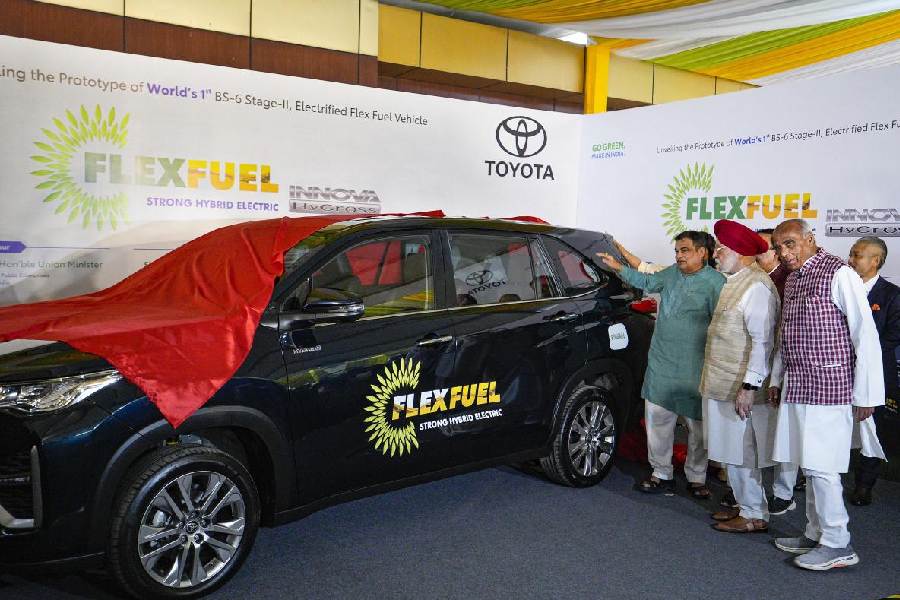Toyota Kirloskar Motors has unveiled a prototype of the BS-6 Stage-II Electrified Flex Fuel Vehicle.
The prototype is based on the Innova Hycross and can run fully on ethanol.
At present, the E10 fuel, which runs 90 per cent on petrol and 10 per cent on ethanol is available in the country. The government plans to increase the ethanol blend to 20 per cent (E20) by 2025.
Ethanol flex-fuel has lower tailpipe emissions than fossil fuel. It releases far less toxic fumes and particles upon combustion. wA flex-fuel hybrid electric vehicle such as the one unveiled by Toyota can run on different grades of ethanol-blended petrol, going up to 100 per cent ethanol.
Ethanol is cheaper than petrol and diesel, and a higher blend of ethanol in fuel will help car owners reduce their fuel bills. It is produced by converting sugar and does not rely on crude.
Ethanol is a natural byproduct of plant fermentation which makes it much more sustainable. Flex-fuel vehicles are easier to adopt than battery electric vehicles because they run on internal combustion engines (ICE). Existing ICE engines can be modified by manufacturers to make them run on a higher blend of ethanol. A whole host of vehicles including two-wheelers are already E20 fuel-compliant.
The Indian Sugar Mills Association has appealed to MoRTH for a reduction of the GST on flex fuels. At present, they attract a GST rate of 28 per cent while BEVs have a GST of five per cent.
Unveiling the vehicle, Union minister for road, transport and highways (MoRTH) Nitin Gadkari, said: “I believe India will soon be the world’s first vehicle manufacturing hub of electric, ethanol, methanol, biodiesel, bio-LNG, bio-CNG and other alternative fuel vehicles.”
Vikram Gulati, country head and executive vice-president, Toyota Kirloskar Motor (TKM), said: “Ethanol is one of the best options in achieving energy self-reliance and reducing carbon emission.”
Vijay Nirani, MD of TruAlt Bioenergy, India’s largest ethanol producer, said, “At the heart of India’s sustainable energy journey lies the noteworthy contribution of the sugar and biofuel industry, which plays a pivotal role in the ethanol blending programme.”











